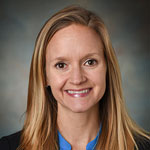
One of the main selling points of a well-rounded diet is how much it can improve one’s quality of life. The right balance of nutrients can boost mood. Lean protein can elevate energy levels. And maintaining a healthy weight can be the key to avoiding a whole litany of chronic illnesses. As a nutritionist, getting people on-board with a healthy diet should be easy, right? Unfortunately, that’s not often the case.
The following bachelors and Master’s programs offer career-focused instruction delivered by trained nutritionists with experience in the field. Find out more what each individual course of study offers through the locations below.
American University offers an Online Master’s in Nutrition Education that will prepare you to become an influential leader in nutrition education and advocacy while promoting nutrition and healthy lifestyle choices in your community and beyond.
For much of the American population, eating healthily isn’t as easy as getting a little nutritional guidance. According to the US Department of Agriculture, a little over 10% of American households experienced food insecurity at some point in 2021. That’s 13.5 million homes — not individuals.
In many cases, these are families living in poverty. Others are the elderly, the disabled, and those living in isolated rural areas where healthy pickings are slim. A fresh, healthy meal is a luxury and the lifelong benefits of proper nutrition are out of reach.
Because of that, Professor Dara Ford of American University’s Department of Health Studies says today’s nutritionists and registered dietitians need to take a more holistic approach to their field. Instead of being solely concerned with what’s on their clients’ plates, they need to consider what’s going on in their daily lives:
“As my career in nutrition has progressed, it’s shifted a bit into thinking more about access to food. How do we make sure that we’re not giving advice to people that is irrelevant based on their social situation?”
In a recent sit-down with nutritionED.org, Professor Ford shared how her research has informed this stance and her approach to nutritionist education. At the same time, she established nutrition as a field not just of science, but of compassion.
 Professor Dara Ford’s career in nutrition is one of curiosity and compassion. After earning a bachelor’s in nutritional sciences, she became a Registered Dietitian Nutritionist and quickly discovered a love for research. As she worked towards her PhD at Penn State, she helped develop a screening tool that’s now used to assess the diet quality of senior citizens. She used this knowledge to create a large body of work that includes research on the relationships between quality of life, nutrition, and mortality. But despite her dedication to scientific research, Professor Ford maintains a wholly person-centered outlook on her field. Today, she’s a Professorial Lecturer at and equips students to handle all of the scientific and personal challenges that come with a career in nutrition.
Professor Dara Ford’s career in nutrition is one of curiosity and compassion. After earning a bachelor’s in nutritional sciences, she became a Registered Dietitian Nutritionist and quickly discovered a love for research. As she worked towards her PhD at Penn State, she helped develop a screening tool that’s now used to assess the diet quality of senior citizens. She used this knowledge to create a large body of work that includes research on the relationships between quality of life, nutrition, and mortality. But despite her dedication to scientific research, Professor Ford maintains a wholly person-centered outlook on her field. Today, she’s a Professorial Lecturer at and equips students to handle all of the scientific and personal challenges that come with a career in nutrition.
Professor Ford’s Studies and Challenges for Nutritionists
When Professor Ford was completing her doctoral dissertation, she worked in a lab that developed a dietary screening tool. Her and her colleagues then used that tool to analyze thousands of responses to questionnaires sent to rural seniors in Pennsylvania. Through these studies, Professor Ford and her teams found that:
- Respondents with poor diets or who are obese were much more likely to require medical services (ER visits, inpatient procedures, outpatient appointments, etc.).
- Low BMI (less than 18.5) and poor diet is associated with higher mortality risks in seniors.
- Seniors with unhealthy diets often have low health-related qualities of life (a term that encompasses a person’s physical and mental wellbeing).
- Respondents with good diets were, “significantly more likely to be food sufficient, report eating breakfast, have no chewing difficulties, and report no decline in [dietary] intake in the previous 6 months.”
Overall, these findings underline just how important nutrition and weight are to a person’s quality of life. Even though the seniors Professor Ford studied are in a particularly delicate part of their life cycle, those who enjoyed proper diets seemed to be healthier and more physically able than many of their peers.
But Professor Ford didn’t just take this as an affirmation of her life’s work. She saw it as a challenge to figure out how to make a good diet more accessible to more people:
“We need to look at nutrition bidirectionally. We need to look at how other factors play into nutrition and how we can potentially meet people where they are.”

For instance, to help seniors truly reap the benefits of a good diet, nutritionists may need to go beyond making recommendations and start asking more questions. What can this person realistically prepare and eat? Which stores can they get to on the way home from the doctor’s office? What can they afford on a fixed income? Or on a more personal level, what foods bring them joy? Because as Professor Ford so aptly points out:
“Sure – we can have someone who’s meeting all of the dietary guidelines, but if they’re miserable doing it, is that worth it?”
For isolated seniors, it may not be. In fact, a study published in the British Journal of Psychiatry found that late-life depression is associated with an increased risk for cardiovascular and all-cause mortality. So while an elderly client may need a heart-healthy diet, if an occasional country-fried steak brings them some much-needed comfort, isn’t that still in line with the goal of improving their quality of life even if it’s not a nutritionally great choice?
That’s just the kind of nuance Professor Ford thinks today’s nutritionists need to consider. Food isn’t just sustenance that can be plucked off a shelf. For some, it’s a rare and precious resource with deep emotional associations. It’s up to nutrition professionals to discern that significance and make their services relevant to each individual. While that may pose a challenge, it can also be rewarding. Who wouldn’t be proud to say that they don’t just make people healthier, but happier, as well?
Expanding This Outlook to Other Populations and Building Trust
While Professor Ford’s work mainly focuses on the elderly population, nutritionists working with just about any group can use it to their benefit. They can help single parents plan meals, teach simple one-pot recipes to people with disabilities, and truly empower anyone struggling with their relationship with food. But these tactics do more than just give clients tools and knowledge. They also build trust.
In a recent Pew Research Center poll, 54% of Americans said they believe dietitians truly care about their clients and offer good recommendations. Overall, that’s not such a terrible number. But in a country where 41.9% of people are obese, that statistic doesn’t seem to be cutting it. Professor Ford provides insight into why trust is often an issue in the nutrition community:
Dietitians have a bad reputation historically for being considered something like the ‘food police.’ My approach is much more like, ‘I don’t want to take food away!’ It’s not this all-or-nothing thing.”
But to many, starting a diet certainly seems like an all-or-nothing thing. On top of that, they see it as stressful, uncomfortable, and hard to keep up with. It’s another opportunity for failure and humiliation. For people that are already struggling with other aspects of life, what’s the point of more pain?
In her role as Co-director of Professor Ford prepares her students to combat these attitudes. She impresses upon them that nutrition is about more than metrics and strict guidelines:
“I want them to incorporate behaviors that are meaningful to an individual. We can’t just say, ‘Well, this is evidence-based, this is where we need to focus.’ But instead, we ask, ‘How do we adapt to that? How do we make sure that the information is meaningful to those that we are working with?’”
For example, consider the case of a person struggling with depression and weight loss at the same time. On their best days, they might be able to go to the store, pick out some seasonal produce, and make a fantastic healthy meal thanks to their nutritionist.

But what about the not-so-good days? While evidence may show that certain foods can elevate mood, that’s not likely to be helpful in the depths of depression. Instead, the nutritionist can offer compassion, non-judgemental discussions about food habits, and some easier alternative meal choices. They can be a pillar of support instead of an authoritarian figure. They can help their client understand that a bad week isn’t a mark on their dietary record. It’s a part of their journey.
In that sense, Professor Ford isn’t creating the next wave of food police. She’s molding compassionate professionals that can truly help people achieve a better quality of life no matter where they’re starting from. Steeped in this school of thought, nutrition becomes, as Professor Ford put it, “meaningful.”